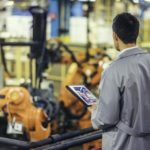 A common refrain is that new technologies, like AI, have worsened the inequality that the likes of Thomas Piketty believe is growing rapidly across the world. The argument is that whereas many technologies in previous generations delivered gains to labor, AI has largely delivered benefits to capital instead.
A common refrain is that new technologies, like AI, have worsened the inequality that the likes of Thomas Piketty believe is growing rapidly across the world. The argument is that whereas many technologies in previous generations delivered gains to labor, AI has largely delivered benefits to capital instead.
What’s more, the jobs that have been available have been increasingly unrewarding, with employee engagement plummeting over the past decade and a pervasive discontent with working life sadly commonplace.
What will the generative AI era do?
First some context. We’re in the midst of a general labor shortage, with aging populations likely to exacerbate that problem. This general trend has been further boosted by government stimulus packages that are ensuring that economies run hot and need a lot of workers.
While AI technologies to date have not really improved the productivity stats a great deal, the early evidence suggests that generative AI might well do that. This is because the early results show that it is particularly good at raising the level of less skilled workers.
There are a number of things that organizations and policymakers should be aware of to manage this transition.
- Get tax incentives right – Many tax systems currently incentivize investing in new technology, which in turn incentivizes the automation of jobs. An alternative approach would be to lower taxes on labor while raising taxes on capital.
- Focus on upskilling – Many have advocated things like universal basic income to counter any displacement of workers, but a better approach is to focus on upskilling programs.
- Increase AI education – Recent research shows how important AI skills are likely to be in the workplace, so AI should be integrated into education as early as possible.
- Increase worker representation – Including workers in decisions around technology has been shown to increase the adoption of those technologies. Too often unions are viewed as an obstructive force but that doesn’t have to be the case.
Today, those in charge of policies, businesses, and education are deciding how well-prepared workers will be for the changing job landscape driven by AI. If they make smart choices, we might dodge the disastrous scenarios of a Hollywood tech movie and craft a happier tale for the job market of tomorrow.